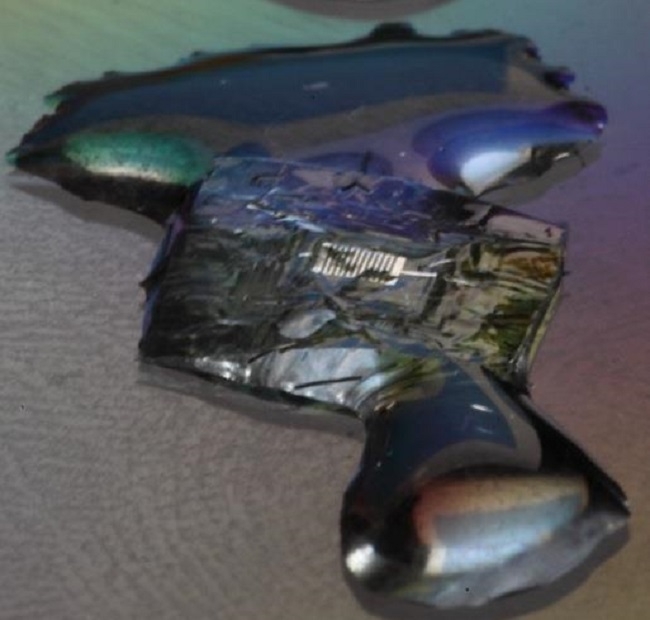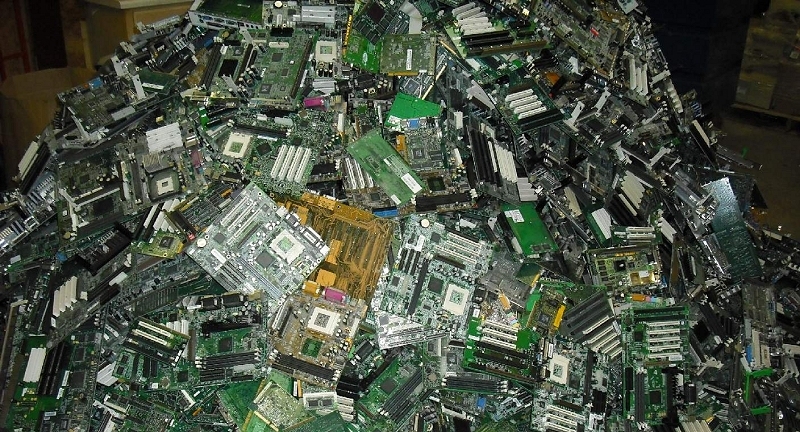Researchers at the University of Illinois have developed silicon circuit boards, chips and sensors that can be completely dissolved in water. James Bond self-destructing gadgetry aside, the breakthrough could significantly reduce e-waste and find practical uses in the medical field.
E-waste is a serious environmental concern when you consider there are now more mobile devices than humans on the planet. The lifecycle for such devices is typically just a few years and although some do get recycled, many end up in landfills. To be able to effectively get rid of the circuit boards inside these devices would result in far greener mobile gadgets.

John Rogers, the lead on the project, said their most recent developments in devices that address real challenges in clinical medicine and in advanced, high volume manufacturing suggest a promising future for this new class of technology.
Potential applications in the medical field largely revolve around implantable devices. For example, temporary electrical brain monitors that assist in rehabilitation from traumatic brain injuries and electrical bone growth stimulators could be used for a set period of time. Instead of having to physically remove the devices once they're no longer needed, they could simply be dissolved and absorbed by the body.
Such technology is likely still several years away but there is promise for the future.
The researchers plan to showcase their advancements at the AVS International Symposium on November 9.
